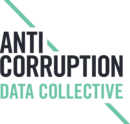A felon, an alleged drug dealer and a comic: How some who may be ineligible got PPP loans


Ben Wieder, Shirsho Dasgupta, Christina Saint Louis, and David Szakonyi
When police officers entered physician assistant Anthony Yarand’s Tampa Bay home on March 8, 2019, they found more than 28 grams of crystal meth, 10 grams of ecstasy, smaller quantities of cocaine and heroin and more than $6,500 in counterfeit bills that he told officers he used for poker games, according to their criminal report.
The officers had been acting on a tip that Yarand, who operates a dermatological clinic, had been leading a double life: selling Botox treatments by day, while distributing methamphetamine and other drugs at night out of his half-million dollar home in a gated community.
Yarand currently faces two first-degree felony drug trafficking charges and a slew of other related felony and misdemeanor drug-related charges.
But a little over a year after he was arrested, he was approved for five loans from the federal Paycheck Protection Program, which was designed to help small businesses struggling during the COVID-19 pandemic.
Yarand’s loans, which totaled more than $320,000, were among more than 100 potentially ineligible PPP loans to Florida businesses flagged in an analysis of newly released data on nearly 4.5 million PPP loans of less than $150,000 by the Miami Herald and the nonpartisan Anti-Corruption Data Collective, a nonprofit group of journalists and data scientists researching corruption. The loans flagged in the analysis collectively amounted to nearly $7.4 million in questionable PPP loans.
The analysis found that several of those loans went to businesses that appear to be tied to owners currently facing criminal charges, like Yarand, or convicted of fraud or other financial crimes in the past five years, either of which would make them ineligible for receiving loans in the program. Those recipients include a veterinarian who has faced legal problems in multiple states and a Miami comedian who is among the state’s habitual traffic offenders.
The analysis of smaller loans follows an earlier investigation by the Herald and the Anti-Corruption Data Collective of larger loans in the program, which found that Florida accounted for nearly one in four questionable PPP loans nationally.
The COVID relief program, which was first approved in March and administered by the U.S. Small Business Administration, doled out more than $500 billion in loans to more than 5.2 million businesses nationally. The loans are forgiven if used for approved expenses such as payroll or utilities. While that cash undoubtedly kept the lights on in many mom-and-pop shops across the country, law enforcement experts say it has also been a magnet for fraudsters.
“When discussing with my colleagues the expected release of billions of dollars in government funds, we all knew what was coming – a total onslaught on the program. And this cannot be a surprise to anyone,” said Ben Curtis, a partner in the Miami office of McDermott Will & Emery and the former assistant chief of the Criminal Division Fraud Section at the U.S. Department of Justice. “It is cynical but true – in the U.S., fraud goes hand-in-hand today with government subsidies.”
Federal prosecutors have so far brought charges against 94 people for allegedly defrauding the program of more than $130 million.
The program had few restrictions, but businesses were required to have been in existence before Feb. 15, 2020, to qualify for a loan and owners facing felony charges or convicted of financial crimes in the past five years were excluded.
The analysis matched the millions of newly released loan records with state corporation data from the open source OpenCorporates website to flag businesses that appeared to have been created after the Feb. 15 cutoff for the program.
Reporters from the Herald then manually reviewed the results in Florida to determine which of the flagged businesses truly seemed suspect. The review turned up dozens of newly created businesses with little to no physical or virtual footprint whose owners in many cases had numerous other red flags.
In response to questions about the Herald’s findings, an SBA spokesperson pointed out that the data included loans approved by lenders, but not necessarily deemed eligible by the SBA.
“SBA has a process for review and that is ongoing,” the spokesperson said.
Veterinarian with history of fraud
Two businesses connected to veterinarian Paula Bemis were approved for more than $50,000 in early May, three months after she was released from the Federal Correctional Complex in Sumter County after serving a four-month sentence that resulted from her pleading guilty to using a client’s credit card without authorization and making false statements. After the first two approvals, another businesses tied to Bemis was approved in July for a $93,000 loan.
Bemis was indicted on Dec. 19, 2017, on charges of fraudulently obtaining a line of credit totaling $15,000 for veterinary supplies, creating fake prescriptions to obtain hundreds of opioid pills and making false reports to the Drug Enforcement Administration between September 2015 and May 2017. At the time she had been practicing in North Carolina under the name Paula Kay Bullock.
She was charged with 23 counts of identity theft, wire fraud, obtaining opioids through fraud, accessing credit cards without authorization and making false statements. She pleaded guilty to two of the counts in September 2019 and was ordered to pay $32,647.63 in fines and restitution after her prison sentence. Bemis’ veterinary license was suspended in North Carolina in 2016 and in Florida this September because she hadn’t reported her conviction or the earlier suspension in North Carolina to Florida authorities.
One of the PPP loans, for $5,000, was approved for Paula Bullock directly, as a sole proprietor, on May 11. Under the rules of the program, sole proprietors and other self-employed individuals were eligible to participate.
Paula Bemis was listed as a director for Docks of Orlando Inc., a dock building and maintenance company that was approved for a $93,000 PPP loan on July 22. The company was incorporated
in June 2020, according to state records, months after the February cutoff. Paula Bemis had been listed as a director for Affordable Animal Care Corp., which was approved for a $48,750 PPP loan in May, before she was removed from the paperwork in April.
Jonathon Bemis, an officer for both companies who has been described as Paula Bemis’ boyfriend in court documents, denied that anyone connected to the businesses had any criminal background. He said that Docks of Orlando had been in existence since 2019 and pointed the Herald to the company’s website for evidence of its work. Domain registration records show the website was created in May 2020.
He said that Paula Bemis’ name, which appeared in corporate documents for Affordable Animal Care filed in October 2019 and February 2020, had been included mistakenly.
“This company is not and has not been associated with any of the activity you are describing,” he said in an email. “My accountant corrected paperwork in which it was incorrectly filed.”
The corporate documents don’t indicate the ownership structure for either company, so it isn’t clear whether Paula Bemis owns 20% or more of either company, which would make them ineligible for PPP loans because of her conviction.
Paula Bemis didn’t respond to numerous requests for comment.
‘Banks were told they didn’t have to look’
More than one out of every four of the flagged Florida loans were approved by one of two lenders: the small New Jersey bank Cross River Bank, which partnered with numerous financial technology, or FinTech, companies to offer PPP loans, and the online lender Kabbage.
In the Herald’s previous analysis of larger loans, Kabbage approved, far and away, the greatest number of potentially ineligible loans.
The fees Kabbage earned through the program — 5% for loans under $350,000, 3% for loans between $350,000 and $2 million and 1% for loans above $2 million — helped right the ship for the Atlanta-based online lender, which furloughed workers early in the pandemic but was acquired by American Express in October.
Kabbage approved two of the three loans tied to Paula Bemis.
The PPP program appears to have been an even bigger financial boon for Cross River Bank. Despite having only one physical branch in the country, it was one of the top 15 lenders in the program by volume, approving more than $6.4 billion in loans, which generated an estimated $296 million in fees.
Cross River approved so many loans by partnering with FinTech companies, which, like Kabbage, automate much of the loan-approval process, dramatically reducing the time and resources needed to evaluate loan applications. Under the rules of the program, “agents” who
helped process the loans were entitled to a portion of the fees earned by the bank that issued the loan.
But an analysis by the nonpartisan watchdog Project on Government Oversight of the PPP fraud charges brought by the Department of Justice through early October suggests that speed may have come at a price.
The report found that FinTech companies had been associated with approving nearly half of the loans that led to fraud charges, and that Cross River had been one of the top two banks in approving these loans.
Jim Richards, a former top financial risk officer at Wells Fargo and Bank of America, said that many banks failed to flag suspicious loan applications because the federal government didn’t require them to, allowing them to largely take borrowers at their word about their financial conditions.
“Banks were told they didn’t have to look,” he said. “That’s the key here.”
He lays the blame largely at the feet of the federal government for not making fraud detection a priority and for not using information the government already had in its possession — such as tax filings from prospective borrowers — to root out potential fraud.
But that doesn’t mean Richards thinks banks should be entirely left off the hook. He believes that lenders such as Cross River and Kabbage deserve greater scrutiny.
“They should be investigated by Congress,” he said.
A spokesman for KServicing, the entity established to handle Kabbage’s PPP loans after the American Express acquisition, declined to discuss specific loans but said in an email that the lender went above and beyond due diligence requirements.
“KServicing strictly adhered to the PPP rules set forth by the SBA, including [anti money laundering] and [know your customer] protocols and more rigorous verification checks using its data and technology which went beyond the minimum requirements issued by the SBA,” said Jon Hoffman.
Cross River did not respond to multiple requests for comment.
Cross River approved the first two loans obtained by businesses tied to Yarand, the Tampa physician assistant facing numerous drug charges. The bank approved a $75,696 loan to Anthony Loren LLC on April 30 and a $41,667 loan to Skinfully Yours LLC on May 8.
Two of Yarand’s remaining three loans were also approved by lenders associated with FinTechs. And two of Yarand’s companies that were approved for loans, Anthony Loren Technologies LLC and Anthony Loren Skincare LLC, were inactive at the time they were approved, according
to state corporation records. Yarand, whose middle name is Loren, was listed as the sole manager for all of the entities.
Yarand didn’t respond to numerous phone calls and messages requesting comment.
Three businesses connected to a Miami comedian and filmmaker currently facing a felony charge of driving with a suspended license while a habitual traffic offender were also approved for a total of $258,417 in PPP loans earlier this year. Marcos Tabares, who uses the stage name El Caballo, was arrested on the charge in November 2019.
He is listed in state records as the sole officer for Thoroughbred Productions Incorporated, which was approved for a $50,222 loan on April 30. Florida state records show the business as inactive. Two other businesses listing Tabares as an officer, 24HourStudios Inc and Universal Insurance Trust Inc., were approved for PPP loans of $102,005 and $106,190.00, respectively, in June and July. State records show that 24HourStudios was first incorporated by Alexander and Marcos Tabares on March 29, a month and a half after the February deadline. A fourth business listing the same Miami address with Alexander Tabares as an officer was also approved for a $149,987 PPP loan in July.
Marcos Tabares said that Thoroughbred Productions and Universal Insurance employed around 10 people and that all their jobs were saved with the help of the PPP loans. He denied knowledge of the activities of 24HourStudios, describing it as his brother Alexander’s firm. Alexander Tabares could not be immediately reached for comment.
Marcos Tabares said that his accountant told him he qualified for the loans and he denied having any knowledge that a current felony charge would make his businesses ineligible to receive loans in the program.
“Absolutely not, nobody ever told me nothing,” he said.
The PPP application form asks borrowers to indicate whether they or any owner with greater than a 20% stake in the company is currently facing a felony charge.
The need for speed
If Congress approves another round of COVID-19 relief, it’s anticipated that it will include funding for another round of PPP. A package put forward by a bipartisan group of lawmakers and endorsed by House Speaker Nancy Pelosi includes $300 billion for another round of PPP funding, while the Trump White House’s plan includes $320 billion for that purpose.
Increased fraud protections haven’t been a major point of discussion, and one of the program’s key architects, Florida Republican Sen. Marco Rubio, doesn’t believe that the program has been beset by fraud, especially compared to other COVID relief programs such as the SBA’s Economic Injury Disaster Loan Program.
“We have learned a good deal about the need for inspection and oversight by the administering agencies,“ Rubio said at a hearing about the program on Dec. 10. “However, the evidence so far does not suggest a fraud rate in PPP that is higher than that of other CARES Act programs.”
That stands in stark contrast to the assessment of anti-corruption experts.
Shruti Shah, president of the nonpartisan Coalition for Integrity, believes that no level of fraud should be considered acceptable in any relief program and that future rounds of PPP should include consequences for banks that don’t thoroughly vet borrowers.
‘There needs to be something in the next round that indicates that if you are facilitating fraud, you are held accountable,” she said. “Speed cannot reduce the need for diligence and controls.”
BEHIND OUR REPORTING
How we did this story
McClatchy has partnered with the Anti-Corruption Data Collective, a nonprofit group of journalists, academics, and policy advocates investigating corruption, to track potentially ineligible loans that were approved in the $525 billion Paycheck Protection Program. The investigation, which has so far examined all loans above $150,000 and smaller loans in Florida, the state with the greatest number of potentially ineligible loans flagged so far, remains ongoing.
The Anti-Corruption Data Collective (ACDC) brings together leading journalists, data analysts, academics and policy advocates investigate various types of corruption in the United States and abroad. Its specific aim is to expose wrongdoing and risk areas in real estate and private investment funds, which can then be used as a platform for advocating for relevant policy changes.
The corporate data used in these investigations has come from OpenCorporates, the largest open database of company information in the world, containing information on over 188 million
companies in more than 130 jurisdictions (including the 50 US states), all from primary public sources.
“This is a great example of how OpenCorporates’ trusted company data powers insights and investigations around the world, said Rebecca Lee, the chief impact officer at OpenCorporates.
“We work incredibly hard to collect and unify company information from over 130 jurisdictions, for the public benefit, and commercial use, and love to see it being used to tackle wrongdoing and improve business integrity.”
Alex Daugherty in Washington and Jay Weaver in Miami contributed to this report.
This article originally appeared on Miamiherald.com



